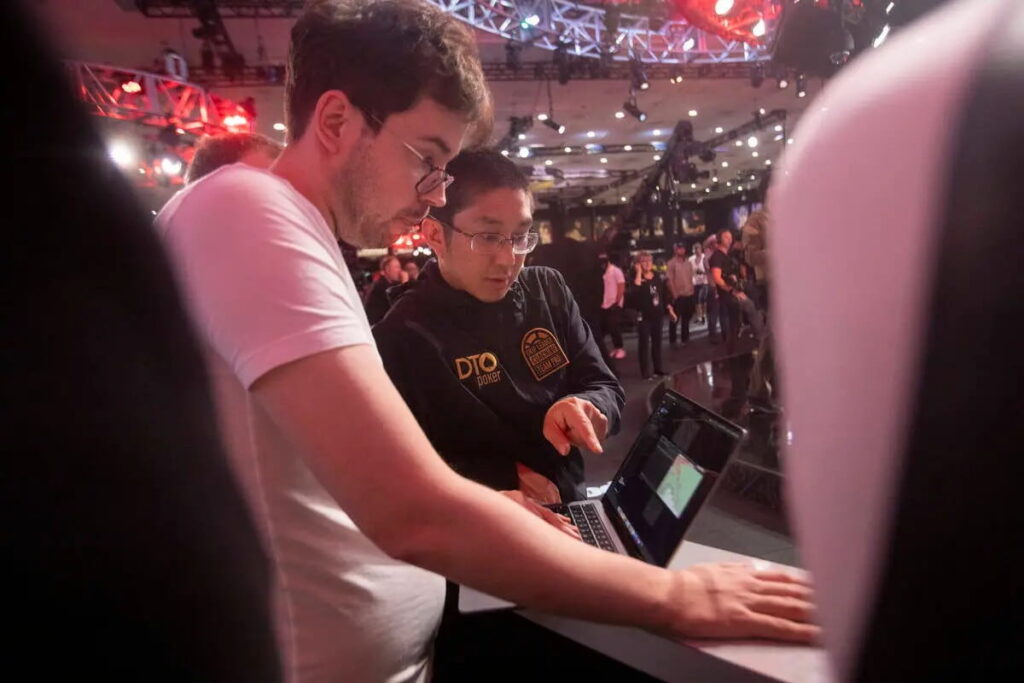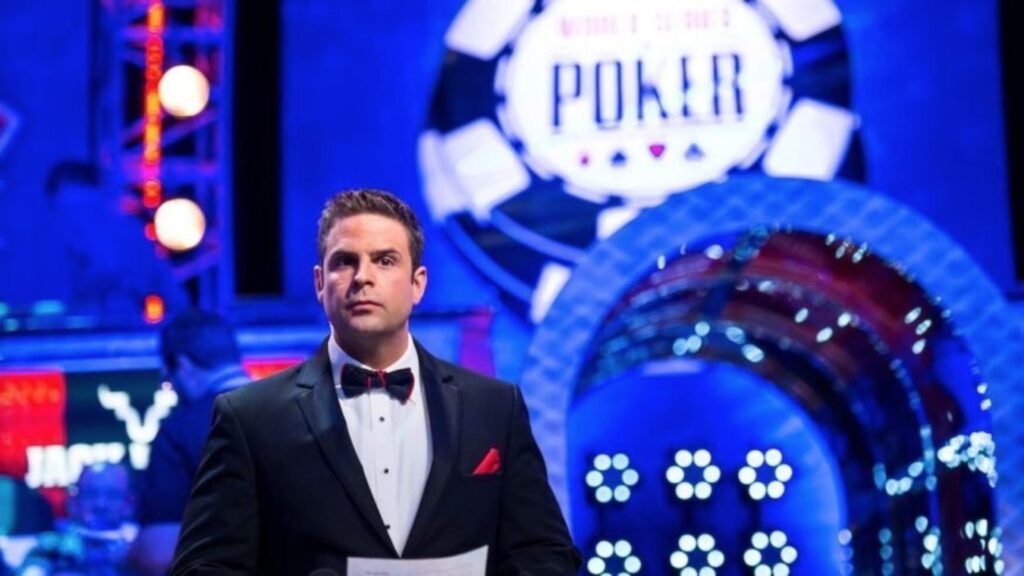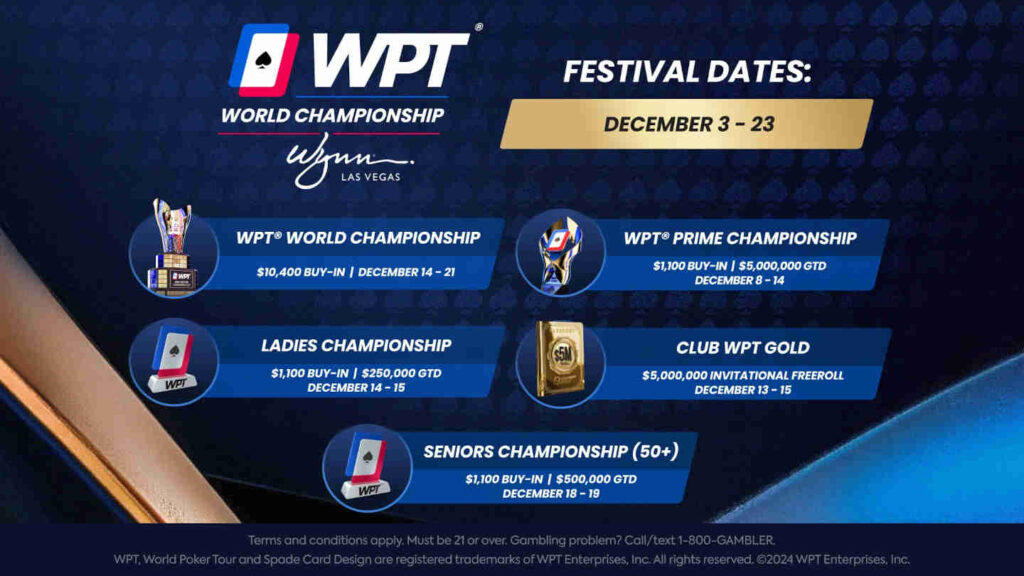The World Series of Poker (WSOP) recently announced its official rulebook for the 2025 Series, and while the majority of the rules remained the same, a few saw some interesting changes introduced.
While some of the rules were introduced as a direct response to the events of recent WSOP’s, others come as a result of trends in tournament poker that other tours have also been introducing.
If you are playing in this year’s WSOP events, keep on reading and familiarize yourself with six key rule changes that could have a direct impact on you at the 2025 WSOP.
Encouraging Players to Stay on Their Best Behavior
Rule #18 of the WSOP rulebook is related to player bans at the WSOP, and it has been redacted compared to earlier rulebooks.
This year, WSOP has made the rule more clear, stating that “any individual may be excluded from an Event before, during, or afterwards at WSOP Management’s discretion for ANY reason (eg. cheating or abusive behavior).
This is a noteworthy rule as it gives the WSOP Management complete discretion over who gets banned and why.
If they choose to employ the rule liberally, the WSOP could ban players for abusive behavior and any attempt at cheating, including angle shooting or use of RTA.
Looking back, it’s worth thinking about whether Phil Hellmuth’s behavior at the 2021 Seven Card Stud Championship would have been grounds for a ban, or whether such actions will still be tolerated from WSOP regulars like Hellmuth in 2025.
Use of Electronic Devices Will Be Limited
The use of electronic devices in the WSOP tournament areas has been heavily disputed in recent years, especially after the events of last year’s Main Event final table, when eventual champion Jonathan Tamayo got help from his rail, who were using a laptop to debatably gain an unfair advantage.
This year, WSOP will be a lot more strict about which electronic devices are allowed on the tournament floor and how they can be used.
Most notably, all players will be required to remove even the “approved electronic devices” once an event has reached three final tables.
This means that players won’t be allowed to use any MP3 players, headphones, or telephones once play is down to three tables, while the use of laptops and similar devices will be restricted even further.
If properly enforced, this rule should help prevent cheating and make the events faster and more fun for the players and fans alike.
Beyond that, players and other visitors without media credentials won’t be allowed to film in the tournament area, except for players recording their own all-in hands.
No Talking Strategy during an Event
In 2024, Jonathan Tamayo won the WSOP Main Event, but the way in which he did it left poor taste in some people’s mouths. The champion got help from two highly experienced poker players, who coached him from the rail throughout final table action.
This time around, the rules have been changed in a massive way, and players will no longer be allowed to get any help from anyone while an event is playing out.
Rule 116 states that players are not allowed to discuss strategy with an outside source at any time while the tournament clock is running.

This rule means that players can only discuss strategy with their friends and coaches during breaks, which seems more than fair.
The only problem with the rule is its enforcement, as it may be difficult for a tournament director to know exactly what a player discussed with one of their railbirds.
Yet, other WSOP rule changes will allow the directors to penalize players at their own discretion, which means it could come down to some tough decisions deep in key events.
Don’t Try to Dodge the Blinds
Another issue that players have brought up during previous years has been with players purposely dodging the blinds when changing tables by simply waiting to take their seat until the blinds have passed them.
The new WSOP rules state that any player dodging the blinds on purpose will incur a one round penalty, in addition to forfeiting a full round worth of blinds and antes.
This means that any player found dodging the blinds will have to forfeit a small blind, a big blind, and a big blind ante, before missing a full round of play. This way, the price of dodging the blinds will be twice as high as taking your seat right away.
The new rule should solve the problem of players dodging the blinds, but floor people will have to keep their eyes open for any players changing tables and potentially dodging the blinds.
Other Changes to WSOP 2025 Rules
The 2025 WSOP will be the first to use the new WSOP+ app, which will allow players to register for events, track their progress, and streamline their WSOP experience through their mobile phones.
A few other minor changes can be found in the 2025 WSOP rulebook, and they have to do with redrawing for the button and what happens to the stack of a preregistered player who does not show up to play an event.
Unlike previous years, where the button was only redrawn at the final table, the 2025 WSOP events will have a button draw when they reach three tables, two tables, and the final table.
When it comes to no shows, the rules have also changed a bit. Players who register for an event will have until the start of the first level after the first official break in the event to take their seats.
Those who don’t will have their stacks removed from play and their buyins refunded, but they will no longer be eligible to compete in the event.
This change is relatively minor to previous rules, which stated the player must show up until the third level of play to be eligible to compete.
Expect Rules to be Enforced More Strictly
Various debates and controversies surrounding the WSOP in recent years have forced the Series to take a good look at the rulebook and make the necessary adjustments.
The few key rule changes introduced in 2025 should go a long way toward helping reduce the amount of potential cheating happening in WSOP events, and make things fairer for everyone involved.
If you are playing in this year’s WSOP events, make sure to familiarize yourself with the rulebook in full in order to avoid any awkward situations or unwanted penalties in key moments of your WSOP performance.


